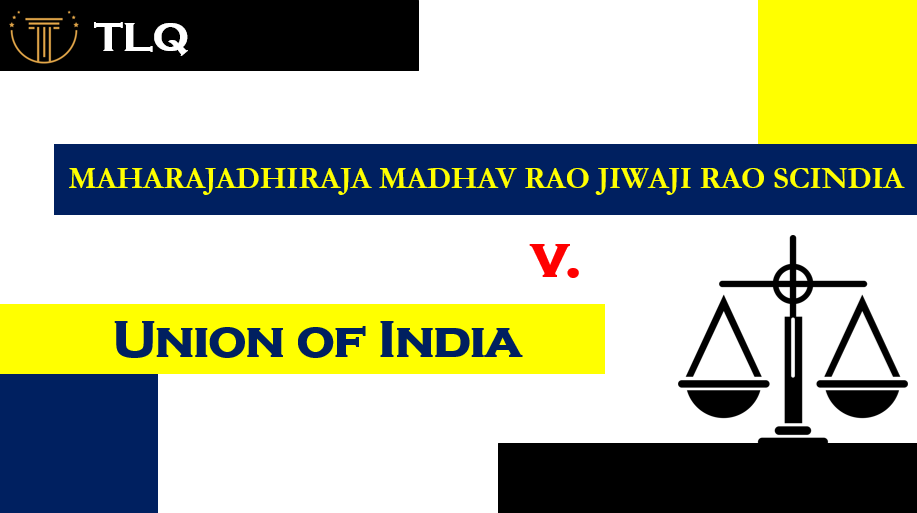Published On: 3rd April, 2025
Authored By: Duvvuru Shiny Abraham
Sri Eswar Reddy College of Law
Introduction:
The Sharon Raj murder case, one of Kerala’s most shocking and high-profile criminal trials, came to a grim conclusion as the Neyyattinkara Additional Sessions Court sentenced 24-year-old Greeshma S.S. to death on January 22, 2025.
In a landmark judgment, Kerala’s Neyyattinkara court sentenced Greeshma S.S. to death for the 2022 murder of her boyfriend Sharon Raj, who was poisoned with pesticide-laced herbal medicine. The court determined that Greeshma had meticulously planned the crime to end her relationship with Sharon, as she was already engaged to another man. After examining the evidence, the court dismissed her defense claims and emphasized the premeditation and betrayal involved in the crime. The court found Greeshma, who was 21 at the time of the crime, guilty of poisoning her long-term boyfriend, Sharon Raj, 23, using pesticide-laced herbal medicine in October 2022. Additionally, the court sentenced her uncle, Nirmalakumaran Nair, the third accused in the case, to three years of imprisonment. Greeshma also received 10 years of imprisonment for the offense of kidnapping/abducting to murder (Section 364 IPC) and 5 years of imprisonment for related charges.
Facts of the Case:
Greeshma Sharon Case: What Happened?
Greeshma of Parasala, the first accused in the Sharon murder case, was awarded the death sentence. The victim, Sharon Raj, was a native of Parassala in the Thiruvananthapuram district. The 23-year-old BSc Radiology student was killed through poisoning by his girlfriend, who reportedly used a pesticide-laden concoction to achieve her goal in 2022. At the time of the murder, Greeshma was pursuing a postgraduate degree in literature. According to the investigation, Sharon’s refusal to end their relationship despite Greeshma’s engagement to an army soldier motivated her to invite him to her house and give him medicine containing poison.
On October 14, 2022, Sharon visited Greeshma’s house, where she offered him a concoction, claiming it would relieve pain. Sharon’s friend, who accompanied him, reported that Sharon began to feel unwell after leaving Greeshma’s house. He was subsequently taken to the Parassala Government Hospital and referred to the Thiruvananthapuram Medical College Hospital. However, he was sent home after his blood tests came back normal.
The following day, on October 15, 2022, Sharon’s health deteriorated significantly. He was taken to several hospitals before being readmitted to the Thiruvananthapuram Medical College Hospital. Eventually, he was admitted to the ICU and died on October 25 due to cardiac arrest resulting from organ failure.
After Sharon’s death, his family alleged foul play and suspected a planned murder. On October 30, the investigation was transferred to the Crime Branch special investigation team. During the initial probe, investigators learned that Sharon’s family had repeatedly contacted Greeshma to inquire about what she had given him, but she concealed the truth. Law enforcement officials later stated that Sharon’s life might have been saved had Greeshma revealed the truth earlier.
Greeshma Case: Key Evidence and Investigation
The breakthrough in the case came from Sharon’s declaration to a magistrate, in which he identified Greeshma and revealed he had consumed herbal medicine provided by her. Suspicious of her actions, Sharon had recorded a video of the drink before consuming it, despite Greeshma’s objections.
Forensic analysis confirmed the presence of pesticide in the decoction, and further investigation uncovered evidence of Greeshma’s methodical planning. Her attempts to mislead the police and conceal her crime ultimately failed as the evidence against her accumulated.
What are the charges against Greeshma?
Greeshma faced multiple charges under the Indian Penal Code, including:
- Section 302: Murder
- Section 364: Abduction with intent to commit murder
- Section 328: Administering poison with intent to harm life
- Section 203: Obstruction of justice by providing false information
Sharon Raj Case: What did the court observe? – JUDGEMENT
In its verdict, issued on Monday, January 20, the Neyyattinkara Additional Sessions Court characterized the murder as “extremely brutal, gruesome, diabolical, and revolting.” The “rarest of rare cases” doctrine, established by the Supreme Court in 1980 in the case of Bachan Singh v State of Punjab,’ was applied in this case.
Judge AM Basheer, who presided over the case, clarified at the outset that the case could not be classified as one of the “rarest of rare” cases merely due to media attention. Nevertheless, he provided comprehensive reasoning for why this particular case qualified for such classification.
How the Sharon murder case qualifies as ‘rarest of rare’:
The court carefully weighed the aggravating circumstances (crime test) against the mitigating circumstances (criminal test) to determine whether this murder could be considered “rarest of rare.”
Judge Basheer stated that Greeshma “actively sought to prolong the victim’s suffering designed to cause extreme pain before death using gruesome methods.” He determined that this indicated a ‘cruel motive.’
The defense, in its arguments, contended that Greeshma was a young woman with a promising academic record who deserved an opportunity for rehabilitation. The defense argued that she had already shown signs of reform and should be given a chance to rebuild her life.
The prosecution requested that the court recognize Greeshma’s dangerous nature and impose the death penalty. Greeshma appealed for maximum leniency in sentencing, citing her age and expressing her desire to continue her education.
Judge Basheer observed that the crime was of a “socially abhorrent nature,” as it was “repulsive and provoked intense anger” in the community. “The offence was committed outrageously, depriving Sharon from having even a gulp of water for 11 days,” the court remarked.
In considering the mitigating circumstances, the court found no evidence of extreme mental or emotional disturbance and ruled that Greeshma was not entitled to leniency based on age, as both she and Sharon were of comparable age. Furthermore, the court determined that Greeshma’s potential for reform and rehabilitation was minimal. “She planned murder by corrosive poison so that it cannot be easily detected, for which she conducted research at length on paraquat. Therefore, I find substance in the submission by the learned Public Prosecutor that the convict had ‘devilish thought’ in her mind because only cunning and cruel criminals can repeat the offence. Such a person cannot be reformed,” the judge concluded.
The hearing was completed within three months. The court commended the investigating officers for their work. The court noted that the police had adapted their investigation methods to contemporary standards. The case was investigated by a special team led by Thiruvananthapuram Rural SP D Shilpa. The investigation relied solely on circumstantial evidence in a case without eyewitnesses. Digital, forensic, and scientific evidence also played crucial roles in the investigation.
Greeshma was observed crying upon entering the courtroom. The court had found both Greeshma and her uncle guilty. The prosecution successfully proved the charges of murder, conspiracy, and destruction of evidence against Greeshma.
Although Greeshma had no prior criminal record, the court designated her a “repeated offender” due to her previous unsuccessful attempts to murder Raj. The court determined that she was therefore not entitled to mercy.
Meanwhile, Greeshma has the right to challenge her death sentence before the Kerala High Court. Individuals sentenced to death have several avenues to appeal their punishment, including appeals to the High Court, the Supreme Court, and the President of India.
CONCLUSION:
The judgment delivered by Additional District and Sessions Judge AM Basheer highlighted that Greeshma had planned the murder in extensive detail, researching poisoning methods and persuading Raj “after offering sex” to consume a fatal concoction.
Evidence presented in court suggested that Sharon did not want Greeshma to be punished. Even during his hospitalization, Sharon maintained affection for Greeshma. He refrained from mentioning her name in connection with his poisoning. According to testimony, Sharon suspected something was amiss with the beverage she offered, which prompted him to record a video. Even while critically ill, Sharon referred to Greeshma affectionately as “vave.” Despite being hospitalized for eleven days without being able to consume water, he did not implicate her. However, evidence showed that she continued to speak negatively about Sharon even after his death.
The court determined that Greeshma had exploited her intimate relationship with Sharon to gain his trust. The judgment described her actions as cold-blooded and motivated by self-interest, as her primary objective was to eliminate Raj because of her engagement to another person. The case has raised significant concerns about trust in intimate relationships.
The court’s assessment indicated that Greeshma displayed antisocial behaviors, emotional detachment, and the potential for future dangerous conduct. The judgment emphasized that she deliberately ended the life of a young man with aspirations and potential. The severity of her actions and the calculated nature of the crime led many observers to characterize her thinking as exceptionally dangerous.
References:
- “Sharon murder case: Why the court awarded 24-year-old Greeshma the death sentence,” The News Minute, 2025.
- “Sharon Raj murder case: Convicted ‘girlfriend’ Greeshma sentenced to death by Kerala court for poisoning,” India Today, January 20, 2025.
- “Capital Punishment: An Overview In India,” Legal Service India, 2025.


